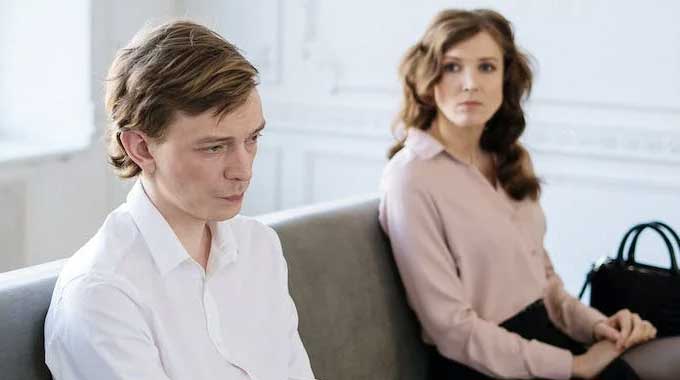What is Couples Therapy?
Couples therapy, or couples counseling, also referred to as marriage counseling or marital therapy, is a form of family therapy that aims to explore the root causes of anything threatening the harmony of a marriage or relationship. It is often the domain of marriage and family therapists, though any proficient therapist or counselor will have some training in helping those with relationship problems.
- What Is Couples Therapy
- The Role Of Couples Therapy
- Why Some People Doubt Couples Therapy Can Help
- Lack Of Confidence In Positive Outcomes
- Causes For Hesitation
- Why Seek Couples Counseling
- Marriage And Family
- Common Problems For Which Counseling Can Help
- Different Types Of Couples Therapy
- What Happens In Couples Counseling
- Is Couples Therapy Effective
The Role of Couples Therapy
Couples therapy is a kind of joint counseling in which a couple comes to a therapist, both as a unit and as the two separate individuals that make up that unit, to seek professional help. Couples may seek counseling at any stage of their relationship, and set the counseling process in motion for any number of reasons – these may range from moderate disruption of a formerly smooth relationship to crises that could be the make or break of a marriage.
A common stereotype is that the purpose of couples therapy is to “fix” relationships. But while such results are indeed what all those involved in therapy sessions hope for, they are more the consequence of a successful counseling process than its single goal. The purpose of couples therapy is to help couples identify and better understand exactly what is not functioning in their relationship.
The aim is then to establish what action can be taken, under the objective guidance of the couples therapist, in order to move forward. As the term relationship therapy indicates, the desired outcome is a healing of the relationship. Which, of necessity, implies that each partner will have to do some work on themselves as individuals too.
Couples therapists and marriage and family therapists are always impartial. Their role is to use their experience, professional expertise, and objective perspective to help shed light on the relationship or marriage as it is and to explore what it might become – for the greater good of both partners.
Why Some People Doubt Couples Therapy Can Help
Couples therapy and marriage counseling have often been depicted in popular culture in very cliched ways. Movies, for example, rarely portray couples counseling convincingly as a genuine solution to relationship problems. And without knowing much about it, many people may not take the idea of couples counseling very seriously.
Lack of Confidence in Positive Outcomes
People may also have heard from friends or acquaintances who have had inconclusive experiences with a marriage counselor. Or they may wonder how a third party, who doesn’t know them or their partner at all, could possibly offer productive advice in the space of just a few sessions. They may also find it doubtful that such a person could have so much more wisdom than they themselves, when they’ve spent so much time and energy looking closely at their relationship issues.
Causes for Hesitation
For many people, there may also be shame and guilt involved in the decision to seek marriage counseling or couples therapy. They may be hesitant to reveal certain aspects of their relationship to a stranger, however qualified.
People may also feel a sense of inadequacy at being unable to keep their relationship healthy, and work through any issues by themselves, without outside help. Or they could be saving counseling as a last resort, if all else fails. Many couples do, in fact, wait, until the situation gets really bad, before finally taking the plunge and reaching out to a couples therapist. There could be apprehension attached to the idea also – what if even couples therapy were not enough?
Another cause for hesitation is uncertainty about the other person’s willingness to try counseling. A person may be reticent to suggest couples therapy if they believe their partner won’t want to – as is the case, according to studies, for one in three women and one in five men.

Why Seek Couples Counseling?
There are innumerable reasons why people seek couples counseling. Sometimes it’s just because people’s overall relationship satisfaction has dropped – perhaps the relationship has lost its initial spark, it feels like there’s less connection, or less intimacy. In other cases, couples may find they have diverging opinions on major questions – whether to have kids, whether to buy a house. Some couples want advice on if it’s safe to proceed from the romantic relationship stage to marriage. Others, having already made this decision, seek premarital counseling to help them make the transition smoothly.
Generally speaking, couples often hesitate to try relationship therapy until there are genuine problems within the relationship. And even though the Journal of Marital and Family Therapy estimates that most couples begin counseling within two years of significant issues arising, if couples wait that long, it may make things worse before they get better.
Marriage and Family
Some people may wonder if couples therapy is really only for married couples. This is absolutely not the case. It’s true that the dynamics of a romantic relationship between people not legally married and those who are may be different. A married couple may have acquired more property and assets. They may have started a family and have children, and so their marital problems mean they have more to lose should the marriage fail. Marital and family therapy may be the most appropriate approach for situations like these.
But any relationship can be challenging, to the extent that if tensions and discord arise, it can place great strain on a couple. While healthy relationships support mental wellness, troubled relationships can have a negative impact on the mental health of one or both partners.
Regardless of couples’ marital status, some professionals, like psychologist Joel Block, Ph.D, author of The 15-Minute Relationship Fix, believe couples therapy could benefit most couples. “Very few men and women have had exposure to the tools that foster long-term relationships,” he explains.
Common Problems for Which Counseling Can Help
There are a number of common reasons people may start to feel things aren’t going so well with their romantic partner. Examples of these include:
- The relationship has lost its spark, the initial sense of connection has weakened, or one partner no longer feels a secure attachment to the other.
- Their sex life is no longer fulfilling
- Communication is poor, and disagreements are frequent
- Quarreling and arguing, often over trivial matters, happens often
- Loss of trust in the other person or of confidence in the relationship
- Infidelity on the part of one partner
- Difficult days together start to outnumber enjoyable, relaxing days
In married couples, other contributing factors to marital discord might include:
- Fundamental differences in parenting styles
- Financial reasons – either difficulties or one partner feeling the other is mismanaging family finances
- Disillusionment, one partner may feel this is not the married life they had dreamed of
Sometimes external factors, that is, things not originating in the behavior, attitude or feelings of one or both partners, can threaten a relationship. For example, a sudden traumatic experience, infertility issues, the unexpected loss of a job, a child developing a challenging health disorder, and so on. Although such events are not brought on by either partner, they can still put an otherwise healthy marriage or relationship under pressure.
Different Types of Couples Therapy
A couples therapist often practices in a private practice or agency setting, although since the pandemic, those offering online therapy have greatly increased.
A number of different approaches to marital problems and relationship issues are currently used by couples therapists, and all these forms of couples therapy can help. As a result of the evolution of counseling methods over past decades, one thing they all have in common is a focus on communication skills, and the recognition that emotion is a primary factor in how people behave, respond, feel, express themselves, and act.
The Gottman method was developed by Dr. John Gottman and Dr. Julie Schwarz Gottman, beginning in the 1980s. It encouraged couples to develop active listening and identified certain negative behaviors seen as the greatest obstacle to good communication and being open to problem resolution. These include criticism and contempt but also withdrawal and defensiveness. A major finding of the doctors’ research was that a couple’s relationship should be a friendship, as well as a romantic connection.
Emotionally focused couples therapy is one of the most popular approaches used today. Clinical psychology has established that a better understanding of a person’s own emotions is beneficial not just to conflict resolution, but also to individual mental health. Emotionally Focused Therapy, or EFT, aims to help partners recognize their habitual communication patterns and emotional responses, and identify which ones may be interfering with the relationship.
EFT focuses on emotional regulation as a means of moderating emotional responses, so that these remain proportion to the issue at hand. The aim is to enable better communication rather than risking escalating a conversation. An important goal of emotionally focused therapy is for both partners to feel more secure attachment within the relationship.
Discernment counseling is used in couples counseling or marriage counseling sessions when a couple is wondering whether their relationship is crumbling or if they should divorce. It can be particularly appropriate when one person wants to end the relationship while the other doesn’t. It is also a common approach when, for example, a couple feels they’ve fallen “out of love”, but want to keep things together for the children or other practical reasons. The safe space of the therapist’s office, and the objective perspective of the marriage counselor, can help couples talk through the best next step.

What Happens in Couples Counseling?
In a therapy session, the marriage and family therapist, or the couples therapist, will begin with an evaluation of the situation. They will ask what brings their clients, and try to pinpoint the major issues and subjects of friction within the relationship.
If the couples therapist is satisfied they have a clear outline in mind of how to help the couple, and the couple wishes to proceed, they’ll probably initially suggest at least weekly sessions. In some cases, they may feel online therapy would be adequate for part of the process.
There is no set number of sessions for couples counseling or marital therapy – some couples may benefit greatly from only a few. But often, a commitment of at least several months is recommended, particularly since couples will need to work on their communication skills, emotional response patterns, and so on, and this takes time.
Is Couples Therapy Effective?
Research suggests that couples therapy gives positive results for around 70% of couples who receive treatment. The success rate goes up to 75%, for EFT specifically. Obviously, all those involved – the couple and their therapist, will notice if the relationship counseling is effective or not. But the marriage and family therapist, or couples counselor, may suggest using the dyadic adjustment scale (DAS-32) – a 32-item scale designed to help measure the health of a relationship. This scale can be a helpful tool to measure progress tangibly and to assess the new level of relationship satisfaction within the couple.
Couples therapy can have benefits beyond healing issues within the relationship or marriage. Counselors are very experienced and shrewd and may pick up on things the couple has not noticed – for example, signs that mental wellness is not optimal in one or both of their clients. In such cases, they may suggest individual therapy or seek the advice of a general mental health professional.
When there is a genuine willingness to move forward and to resolve their issues on the part of both partners, then the chances of positive outcomes are greatly increased. Relationship problems can be particularly frustrating when both people still have genuine feelings for each other, and want to relationship to succeed, but cannot harmonize their disagreements.
Therapy can help when a couple knows the direction they’d like to go together but just need an impartial, qualified professional to help them see the way forward.
There is no shame in seeking couples therapy. Highly skilled and proficient people in all kinds of fields still seek guidance at times. Top sportsmen have coaches. Successful business people have mentors. And even therapists may have their own therapist! At GIA Miami, we believe that sometimes all it takes is the right support and counseling, in a safe space with an experienced and compassionate professional, to save a relationship from becoming just another divorce statistic. Call us today, and begin the journey to healing your relationship.








